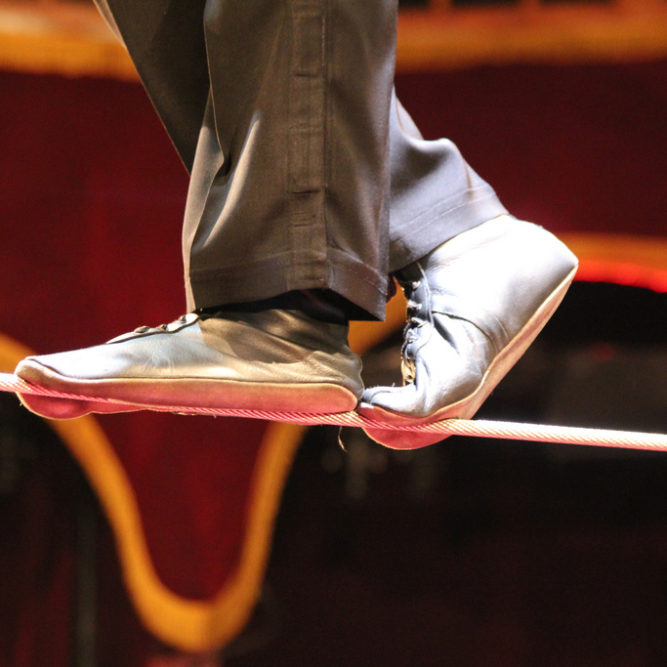A Christian Counselor’s View on Why Faith is Risk Rather than Rest
Christian Counselor Seattle
By Chris Chandler, MA, LMHC, CSAT-C, Seattle Christian Counseling
 People often think of faith as danger-free. Nothing can harm or frighten you if you trust God. As any martyr’s biography can tell you, this is not true. Living is inherently risky. Faith does not change that. You could almost say faith makes facing life’s risks even more challenging. Addiction is confidence in something with which you can immediately comfort yourself. Faith is confidence that the unseen may work out in your favor. (Hebrews 11:1) You know that bottle of wine will make you feel better immediately. God’s plan does not have the same instantaneous effect. In this article I will discuss my view as a Christian counselor on why Faith is a risk but one that is worth taking.
People often think of faith as danger-free. Nothing can harm or frighten you if you trust God. As any martyr’s biography can tell you, this is not true. Living is inherently risky. Faith does not change that. You could almost say faith makes facing life’s risks even more challenging. Addiction is confidence in something with which you can immediately comfort yourself. Faith is confidence that the unseen may work out in your favor. (Hebrews 11:1) You know that bottle of wine will make you feel better immediately. God’s plan does not have the same instantaneous effect. In this article I will discuss my view as a Christian counselor on why Faith is a risk but one that is worth taking.
Faith as a Risk
This is why it can be so difficult for addicts to trust God instead of the source of their addiction. Relying on an addiction is like hoping an hourglass won’t eventually run out of sand. For a while it seems to be holding up, but it always runs out in the end. But it is certain for a while. Faith is rarely certain. It’s why C.S. Lewis has Mr. Badger say of Aslan in The Lion, The Witch, and the Wardrobe, “Who said anything about safe? ‘Course he isn’t safe. But he’s good.”
Aslan, like the all-powerful creator he’s meant to represent is unpredictable and just, but he does what he does to ensure the best interests of his believers. Even if it does not seem like it at the time.
Faith as a Homecoming
Like the prodigal son in Luke 15, addicts want to feel good. Their current circumstances do not provide restful contentment, so they go looking elsewhere. Unfortunately, they tend to gravitate toward intense, fleeting pleasures. The burst of gratification offers the fulfillment they crave, but it does not last. They keep at it– trying to assuage the emptiness with brief bursts of fulfillment. Eventually, trying to feel good becomes too difficult. They look for a new solution.
This is why Dr. Gerald May refers to abandoning addiction in favor of faith and sobriety as a “homecoming” in his book Addiction & Grace. As the prodigal son realized, there is no security like a loving parent. Addicts find the same is true when they begin to satisfy their longing for God in God, rather than the source of their addiction.
Why Faith is Worth the Risk
 But why should you take the leap of faith when you already have something you know will make you feel better? Because addiction cannot offer you anything other than short-term relief. Addiction is a crutch. You need it because you cannot, or will not, find the strength to face life’s difficulties standing on your own two feet. But you cannot go on like this forever. You will begin to lean so heavily on the crutch of addiction that snaps under you.
But why should you take the leap of faith when you already have something you know will make you feel better? Because addiction cannot offer you anything other than short-term relief. Addiction is a crutch. You need it because you cannot, or will not, find the strength to face life’s difficulties standing on your own two feet. But you cannot go on like this forever. You will begin to lean so heavily on the crutch of addiction that snaps under you.
While some secular cynics may mock faith as a crutch, think of it instead as a guy wire, like those acrobats use to perform on a high wire. You do not need it to accomplish what you are doing, but it comforts and encourages you to know it is there in case you stumble. Professing Christian and seventh-generation acrobat, Nik Wallenda (who has walked high wires unaided across Niagara Falls and the Grand Canyon) says faith is about trusting God to bless his work, not testing him, “To test God would be to never train, never practice, and then to walk across the Grand Canyon.”
Addiction traps you where you are. But faith pushes you toward growth and self-determination. It’s like the old Protestant work ethic, “The Lord helps those who help themselves.” Yes, God often blesses us in ways we never anticipated or imagined, but it is usually after we have given him something to work with.
Christian Counseling for Addiction
If you are fearful you cannot handle life without your addiction, consider getting in touch with a professional Christian counselor. They can help you figure out which aspects of your life keep you so dependent on your addiction, and help you find healthier alternatives. A professional Christian counselor will use therapeutic techniques and biblical principles to help you trust yourself and trust God.
Photos
Provided by Flickr CreativeCommon: “Balancing Act,” courtesy of Quinn Dombrowski (CC BY-SA 2.0); “Hebrews Eleven Verse One,” courtesy of Jonathan Lin (CC BY-SA 2.0)



